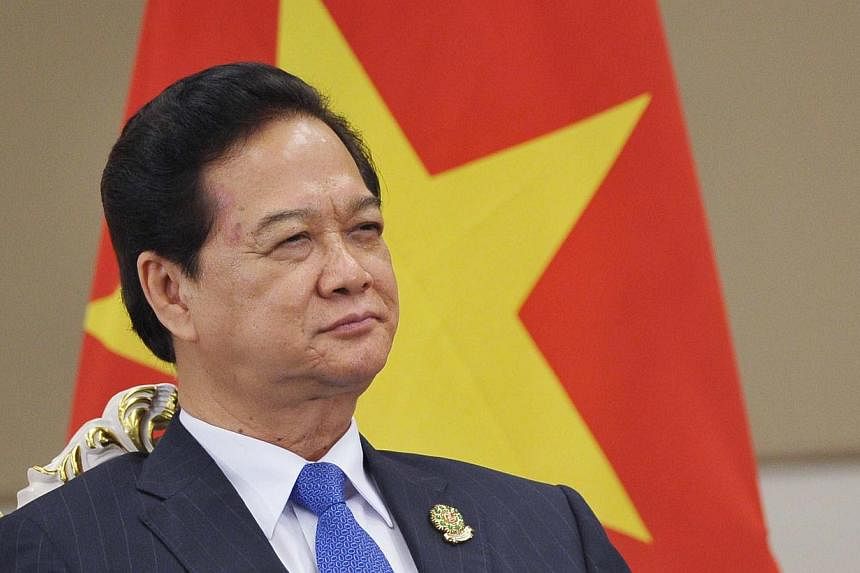HANOI (AFP) - Vietnam's Premier received a boost on Saturday when a majority of lawmakers in the one-party state voted for him in the communist country's second annual confidence vote, a turnaround from his poor showing last year.
Some 320 out of 484 lawmakers said they had "high confidence" in Prime Minister Nguyen Tan Dung, a sharp contrast to last year when a third of parliamentarians in the country's rubber-stamp National Assembly said they had "low confidence" in his leadership. Just 68 lawmakers expressed "low confidence" in the premier this year.
The confidence vote, which was held for the first time in 2013, is an effort by Vietnam's authoritarian rulers to ease growing public discontent over a lack of accountability and corruption.
Lawmakers could express "low confidence", "confidence", or "high confidence" in 50 top officials - including the Prime Minister, President and chairman of the National Assembly.
Officials who received more than 50 per cent "low confidence" votes for two consecutive years can be asked to resign, according to state media reports.
But both this year and last, all officials facing the vote managed to secure the necessary amount of support to avoid future disciplinary measures.
This year, one of the most popular officials was President Truong Tan Sang, who received 380 "high confidence" votes.
Health Minister Nguyen Thi Kim Tien, who has been rocked by a series of health scandals this year, was the least popular official, receiving 192 "low confidence" votes.
Mr Dung, whose reputation had been tainted by a string of corruption scandals and concerns over his handling of the economy, has apparently improved his popularity over the last year by speaking out strongly against China.
Hanoi and Beijing are locked in a bitter maritime dispute over disputed island chains in the South China Sea.
In May, Beijing moved an oil rig into waters claimed by Hanoi, prompting a high-seas standoff and deadly anti-China riots in Vietnam. The rig was removed in July.
Mr Dung has repeatedly lashed out at Beijing's assertiveness in the South China Sea, using regional forums, including a recent Asean meeting in Myanmar, to call for stronger international action to contain Chinese aggression in contested waters.
Although political observers have welcomed the confidence vote as a sign the regime is trying to respond to public dissatisfaction, the actual results were dismissed by many as largely meaningless.
Many local observers had predicted that officials would close ranks behind the scenes to support each other regardless of performance.
"It's funny - every vote is the same in dictatorial nations, top leaders always get 'high confidence'," said Mr Le Quoc Quyet, a Catholic dissident and critic of the government.
"It's just cheating," he said, comparing the confidence vote to a sham election in North Korea and arguing that National Assembly deputies were not representative of the people.

